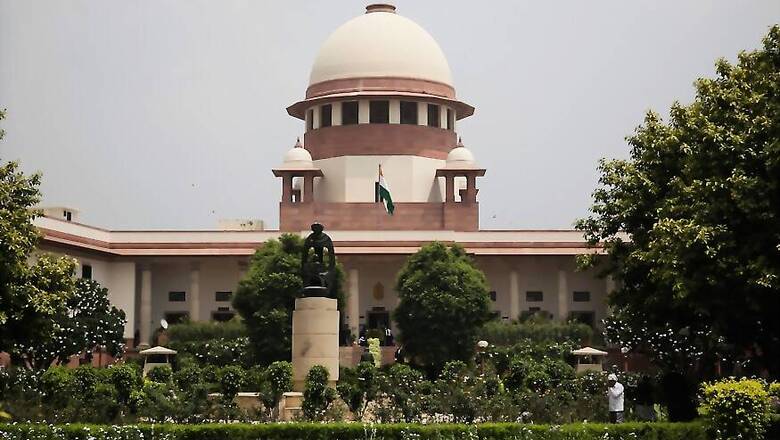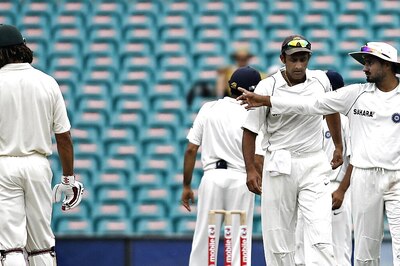
views
New Delhi: The Supreme Court on Monday refused to entertain a PIL seeking direction to political parties that they do not field candidates who have more than two children.
A bench headed by Chief Justice Ranjan Gogoi, while refusing to entertain the PIL, allowed BJP leader and lawyer Ashwini Upadhyay to withdraw it on the ground that his representation on two-child norm was pending consideration with the ministry of home affairs (MHA) and the Election Commission.
The lawyer told the bench, also comprising Justice Sanjiv Khanna, that authorities would be reluctant to entertain his representation if the plea was dismissed.
At the outset, the bench made clear that it was not willing to entertain the plea.
"What is your prayer. Let us understand your prayer. We do not think we can do much. How can a Constitutional court say that if you have more than two children, you cannot contest elections. Apart from the issues of propriety, legality and jurisdiction, would it be a proportionate judicial order," the bench asked.
The plea said that the two-children norm may be used as a restriction in the Election Symbols Order of 1968 which deals with the recognition of national and regional political parties.
The PIL has sought declaration of the 'two-child norm' as a mandatory criteria for government jobs, aids and subsidies and urged that the law, dealing with the "condition for recognition of a state or national party" be suitably amended.
The plea said non-compliance of the norm should lead to withdrawal of citizens' statutory rights including right to vote and contest elections.
It had also sought declaring of first Sunday of every month as 'health day' to spread awareness against population explosion and providing contraceptive pills, condoms, vaccines to economically-weaker sections and families below poverty line.
The petition had sought directions to the Centre for setting 21 years as the minimum marriageable age for all citizens and for implementing the 24th recommendation of the National Commission to Review the Working of the Constitution (NCRWC) which proposes to control population by means of education and implementation of small family norms.
It further said that the two-child norm for contesting local body elections has been adopted by some states like Andhra Pradesh, Gujarat, Maharashtra, Odisha, Rajasthan and Haryana, which has yielded very positive results in reducing the population growth in those states.




















Comments
0 comment